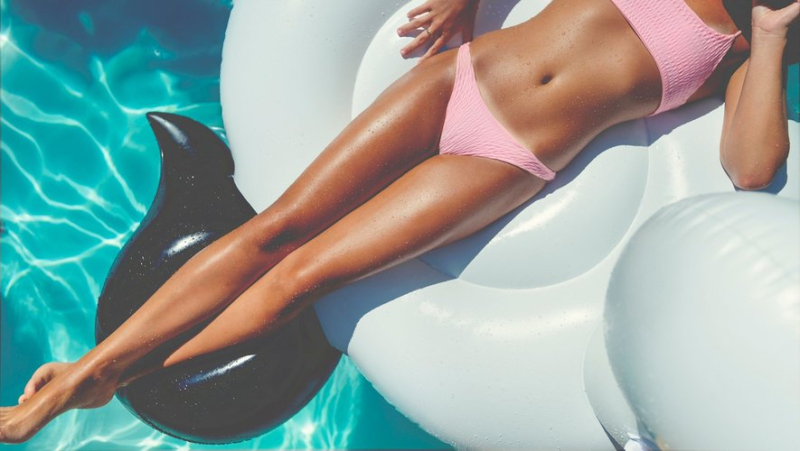Dark skin, UV… these preconceived ideas to combat to preserve the health of your skin when the heat arrives

Contrary to popular belief, sun protection, whatever the index chosen according to your needs, does indeed allow you to tan. courtneyk/Getty Images
"If I protect myself, I don't tan", "I have skin matte so I don't need sunscreen", "doing UV prepares my skin for tanning"< /em>… So many preconceived ideas that can harm health and increase the risk of skin cancer. As the first departures on vacation approach, here are three that it is important to fight against in order to tan safely.
According to a recent survey carried out by the Federation of Beauty Companies (FEBEA), nearly four in ten French people (39%) think they can skip the sunscreen step, believing that they do not have any really need. An idea shared more by men (46%) and young people aged 25 to 34. It even appears that the French take reckless risks in certain situations: 16% say they never protect themselves by the sea or a swimming pool, and 30% in a garden or on a terrace. An alarming observation which demonstrates the need to better inform the public, but also to fight against certain preconceived ideas.
Sun cream does not help you tan
In the collective imagination, sun protection necessarily means total absence of tan. False, replies FEBEA, specifying that the skin tans "even when we apply sun protection 50 +". Same story with the League Against Cancer, which explains that the production of melanin continues even after the application of sun protection. "Depending on the sun filters used, the role of sun protection is to absorb and/or reflect the UV rays that reach the surface of the skin and not to slow down the production of melanin. This defense reaction of the skin leads to an increase in skin tan", specifies the League.
Exit sun protection once the skin is tanned
On vacation, like the rest of the year, sun protection should be your best beauty ally, even if you already have tanned skin. According to the Solar Security association, tanning can effectively reduce the risk of sunburn, but certainly not prevent premature aging. "Even well tanned, we respect so the instructions: no sun between 12 and 4 p.m., without the hat, glasses, t-shirt and cream", she explains. FEBEA goes even further, and underlines the importance of not changing SPF (Sun Protection Factor) after tanning: "Your phototype (skin color ) does not change, even if you are tanned". And this is obviously valid for dark and dark skin, requiring sun protection.
UV cabins prepare the skin for the sun
"The health risks linked to exposure to artificial UV rays emitted by tanning beds have been established for many years", warned Anses in 2018. Beyond these risks, there are many preconceived ideas around artificial tanning, including the fact that it helps prepare the skin for the sun . As such, the League Against Cancer warns that, no, "we [do not] tan better with skin preparation in a UV cabin". A very important recommendation if we consider that some people expose themselves without protection due to artificial tanning. And the Solar Security association specifies: "The tan, which can appear under the action of these lamps, is only slightly protective because they emit almost only UVA which are rays which cause little or no thickening of the epidermis".




